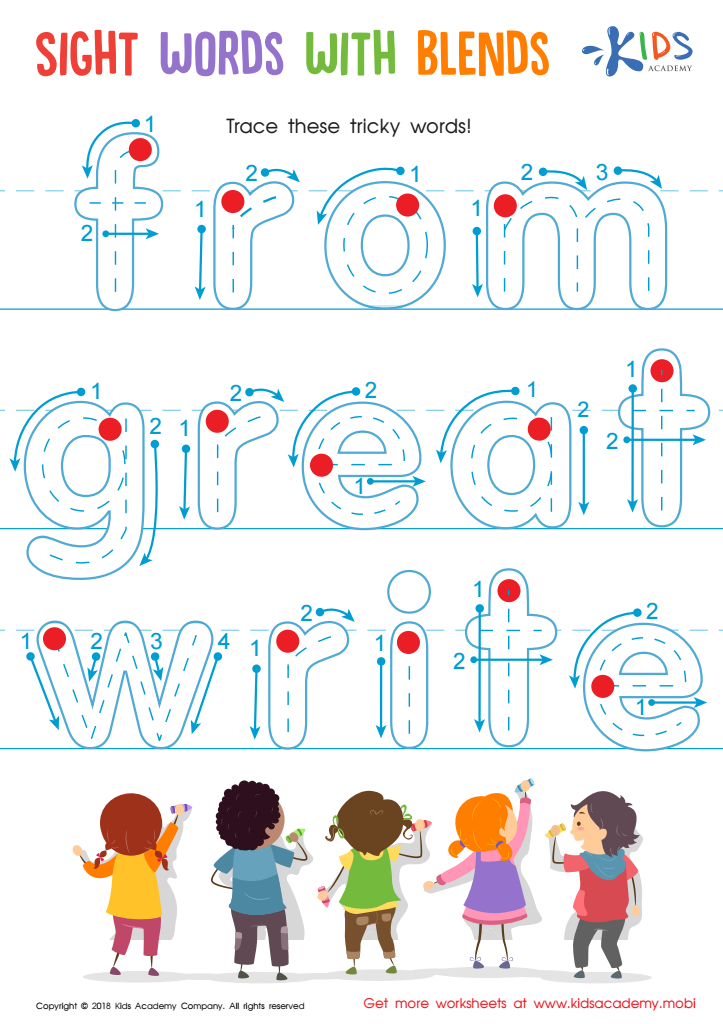Phonics recognition Normal Building Vocabulary Worksheets for Ages 5-8
3 filtered results
-
From - To
Discover an engaging collection of Phonics Recognition Normal Building Vocabulary Worksheets designed specifically for children aged 5-8. These worksheets help young learners strengthen their phonics skills while expanding their vocabulary in a fun and interactive way. Each activity focuses on familiar sounds, sight words, and letter combinations, making it easier for kids to decode words independently. Perfect for classroom use or at-home learning, our worksheets foster essential reading skills and boost confidence in early literacy. Enhance your child's learning experience by integrating phonics recognition into their daily routine. Start their educational journey off right with our thoughtfully crafted materials!


Sight Words with Blends Worksheet


Phonics and Word Recognition: Assessment 1 Worksheet


Phonics and Word Recognition: Assessment 2 Worksheet
Phonics recognition and vocabulary building are essential components of literacy development for children aged 5-8. Early literacy skills form the foundation for a child's educational journey, making it crucial for parents and teachers to prioritize these aspects.
Phonics recognition involves understanding the relationship between letters and sounds, enabling children to decode words independently. This skill facilitates reading fluency and comprehension, ultimately boosting a child's confidence in their abilities. As children develop phonics skills, they start recognizing new words and adopting them into their vocabulary, enriching their communication skills.
Building vocabulary is equally important during this developmental stage, as it fosters expressive and receptive language skills. A robust vocabulary enhances children's ability to articulate their thoughts and understand complex texts, which are vital for academic success.
Additionally, parents and teachers play a significant role in stimulating interest in reading and vocabulary through interactive activities, such as storytelling and word games. Engaging children with diverse literature not only motivates them but also exposes them to different contexts, allowing for a deeper understanding of language nuances. By focusing on phonics and vocabulary, adults can equip children with the essential tools they need for lifelong learning and effective communication.
 Assign to My Students
Assign to My Students


























